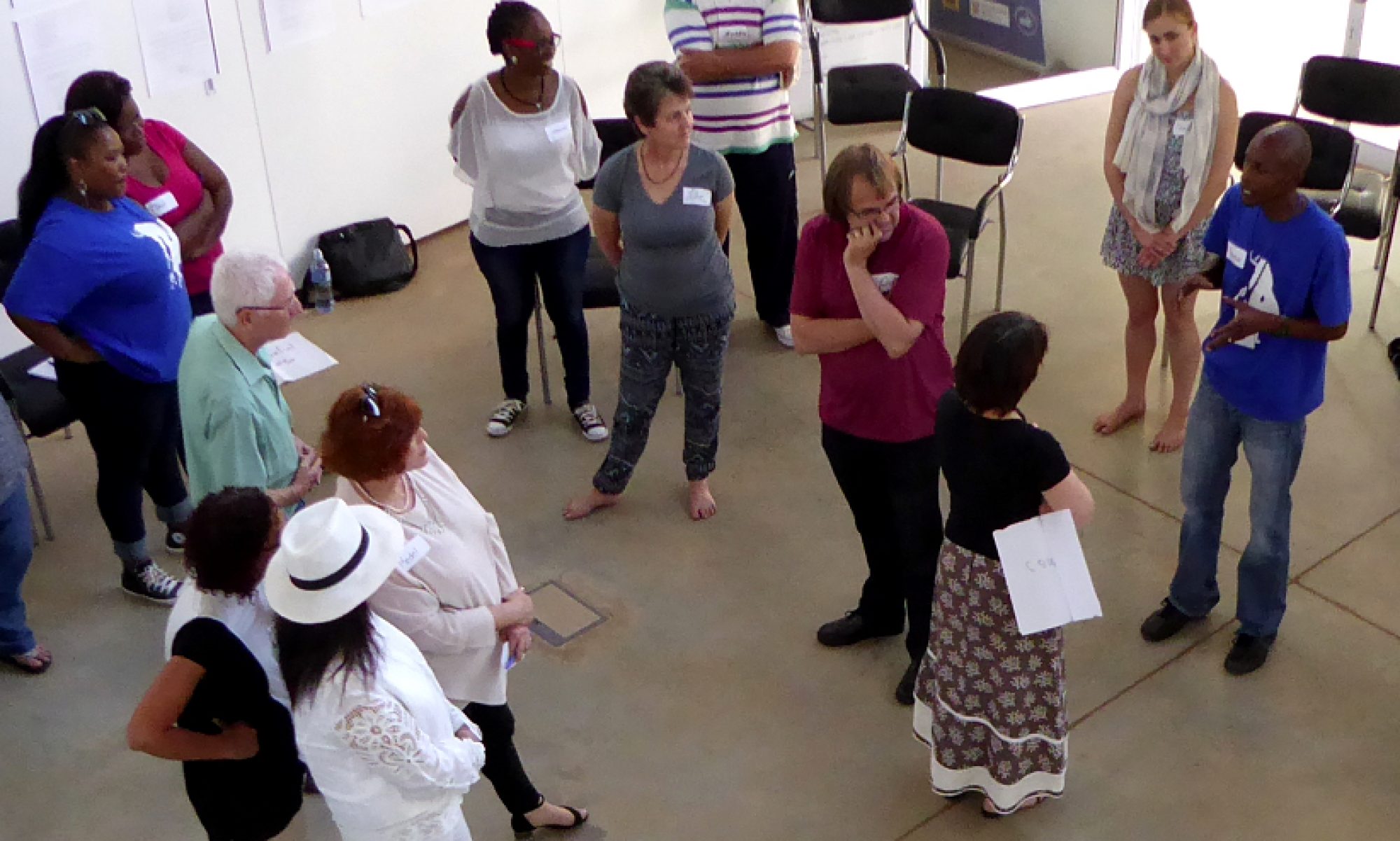A paper and a workshop at The International Drama in Education Research Institute
Christian and I (Petro) presented a paper and a workshop at The International Drama in Education Research Institute (IDIERI) 2018 in Auckland New-Zeeland this past weekend. The theme was The Tyranny of Distance. IDIERI is the premier drama education/applied theatre research institute held triennially around the globe. IDIERI focuses on developing and expanding research in the community of drama education/applied theatre and aims to engage rigorous academic discourse within the field. Read more on the conference theme and programme.
Our own response to the theme was to look at how online rooms can be used to over come distance and its tyranny by connecting PhD students across Africa with each other through embodiment processes.
Below are some resources you might like to access if you are interested in this theme:
If you were there, you can download our presentation slides here: Paper slides – Embodiment in online rooms
and our workshop slides here: Workshop slides IDiERI
You may also be interested in some of the applied Improv games we played with their online adaptations:
Here are two articles you may like to read:
This one is an overview of the principles we shared at IDIERI and
You may also like to buy the complete facilitator guide for The Flying Pig Signature Move (for $7,50) for face to face and online rooms here. It comes with a case example of how it worked in the life of one particular participant.
For more context, this was our abstract
An important aspect of Applied Improvisation and drama is using and perceiving the body: your own and those of others in the room. What happens when this room is virtual? Can adaptations be made to do embodied work online without jeopardising impact? Is this a flying pig? At Drama for Life, Wits University, Johannesburg, students of the PhD cohort are scattered across the African continent able only to travel through virtual space to engage with peers. This paper focuses on adaptations and inventions two academics had made to engage these and other participants in online embodiment processes over the past two years. While much is written about e-learning processes, or about incorporating online technologies in face-to-face drama work, little is said about embodiment work in online rooms. This study aims to address this gap making recommendations for online facilitation of embodiment work. While the study identifies a number of challenges including access to wifi and reliable electricity sources on one hand and the loss of physical touch and three dimensional engagement on the other, it highlights the value of online engagement using the body for PhD students that are isolated and struggling to maintain focus on their studies.
Key words: Applied improvisation, applied drama, online facilitation, embodiment


